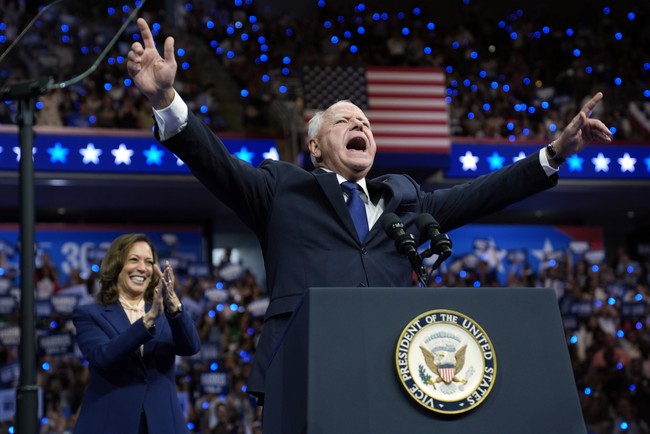These aren’t exactly “October surprises.” The National Weather Service may have underestimated Hurricane Helene’s strength, but the war with Hezbollah and the port strike were no surprises. Still, each of these events could disrupt a presidential campaign.
And it’s not Donald Trump’s.
Remember Joe Biden’s promise to restore “normalcy” after the pandemic? Does this feel like normal? Eight million illegal immigrants have entered the country, and the Department of Homeland Security has lost track of hundreds of thousands. Recent reports show that 15,000 convicted murderers were allowed in, along with 1,500 accused of murder. Thousands of rapists and many more violent criminals have also been let in.
This is far from “normal,” and acting as if it is only makes the situation more unsettling.
Now, Kamala Harris has backed a dockworkers’ strike that threatens to reignite inflation. If that doesn’t work, a war in the Middle East between Iran and Israel could push oil prices above $100 a barrel.
Notice a pattern? Neither Biden nor his chosen successor, Harris, seem to be doing much about these crises. They’re certainly making sympathetic statements about aid for hurricane victims, consistently showing they “feel the pain” of those affected.
It’s curious how the national media skewered George W. Bush’s response to Hurricane Katrina in 2005, while today there’s barely any criticism about people across the Southeast without power, water, or access to food and medical aid.
“Look at the world today — Look at the missiles flying right now in the Middle East, look at what’s happening with Russia/Ukraine, look at inflation destroying the world. NONE OF THIS HAPPENED WHILE I WAS PRESIDENT!” Trump posted on Truth Social. His term wasn’t without difficulties, but it ended four years ago. Now, Harris faces serious challenges.
Each of these crises could qualify as an October surprise, but it’s hard to predict their effect, given the unpredictability of this campaign. Trump, for example, has been convicted of a crime and survived two assassination attempts, while an incumbent president dropped out of the race months before Election Day.
With no more major events like the vice presidential debate scheduled, successfully managing these unfolding crises could prove crucial.
Any of these issues could sway the small number of voters in key swing states that will decide this election. While Harris holds a narrow lead in some national polls, most swing state surveys show no clear leader.
Biden has already taken the controversial step of telling Israel not to strike Iran’s nuclear infrastructure. When asked if the U.S. would support such a strike, Biden’s answer was a single word: “No.”
But Israeli Prime Minister Benjamin Netanyahu seems to have tuned out his most important ally. His attitude seems to be, if Biden wants to manage the war, he should move to Israel and run for office.
Whatever Netanyahu chooses to do in the coming days, it will happen without input from the Biden-Harris administration.
Meanwhile, the port strike belongs entirely to Harris and Biden. The administration has encouraged dockworkers to demand a 77% raise and resist automation, which could send prices skyrocketing even more than a war in the Middle East would. This is entirely on Harris-Biden, and trying to sell the idea that workers earning $81,000 ($200,000 with overtime) need to be treated “fairly” is politically tone-deaf.
If any one of these crises spirals out of control, Harris’s campaign may not recover.
 Telegram is where we really talk. Don't miss out!
Telegram is where we really talk. Don't miss out!







